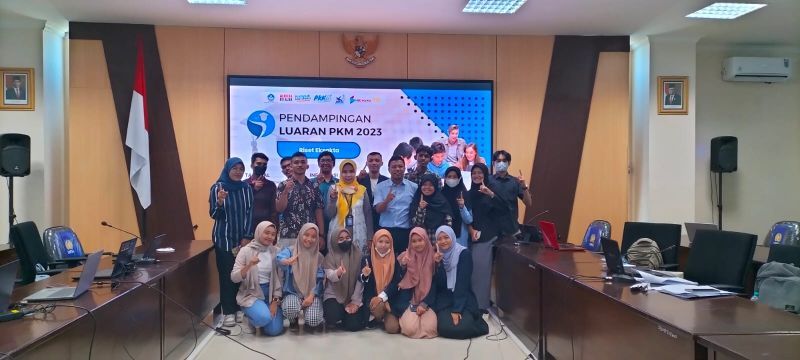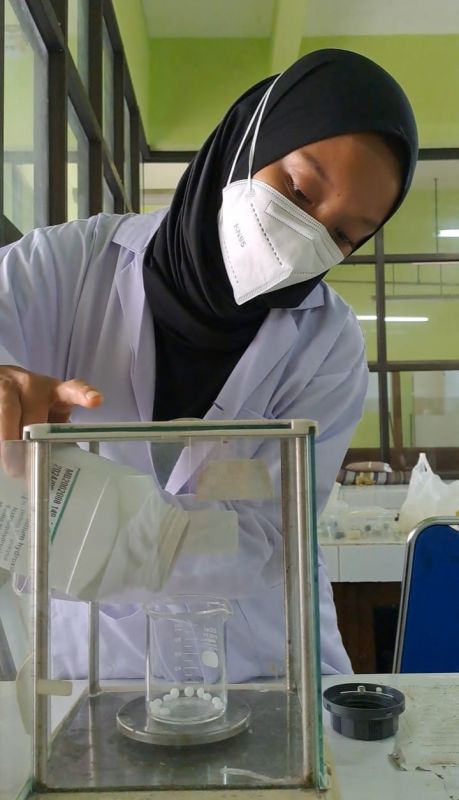How to Reduce the Accumulation of Plastic Waste on the Beach ala FMIPA Students

Unesa.ac.id, SURABAYA-The waste problem is still a terrible scourge in Indonesia. One example is plastic waste or microplastics in water areas that continue to increase.
To overcome this, there needs to be support and real action that is not only carried out by the government, but students can also take part in it.
The real action was carried out by a group of students from the Faculty of Mathematics and Natural Sciences (FMIPA), Surabaya State University (UNESA) who are members of the Student Creativity Program for Research and Exact (PKM-RE) some time ago.
The team consisted of Diah Ayu Rahmawati as chairperson, Pratiwi, Paring Puji Lestari, Hasna Nadifa and Sulthanah Nabilah as members.
They researched the application of “Fe3O4 Nanoparticles from Mineral Sand as Microplastic Absorbance in Tulungagung waters”.
The research was based on their concern about the accumulation of plastic waste in Tulungagung waters in recent years.
Diah as the team leader said, plastic waste cannot be underestimated, because it can have an impact on the environment.
Through this PKM program, they are looking for solutions to tackle plastic waste more effectively and environmentally friendly.

They developed a new method that involves placing layers of sand in water areas prone to microplastic contamination.
Floating microplastics will be trapped by the sand structure, helping to clean the waters from microplastic pollution.
The sand layer of Tulungagung material proved to give more confidence that the method they developed has the potential to be an effective and sustainable solution in cleaning waters from microplastics.
Diah added, after conducting various tests, they believe this research can reduce the level of microplastics in the waters.
Meanwhile, Lydia Rohmawati, S.Si., M.Si. as the accompanying lecturer was proud of her students' action. “This is an extraordinary achievement and proof of the students' hard work and dedication,” said Lydia.
She added that the Student Creativity Development (PKM) is a fitting means for students to realize their brilliant ideas and make a real contribution to environmental sustainability.
“We hope that their solutions can make a big impact in the effort to protect our waters,” she said. []
Author: Fionna
Editor: @zam Alasiah*
Photo: PR Team Documentation
Share It On: